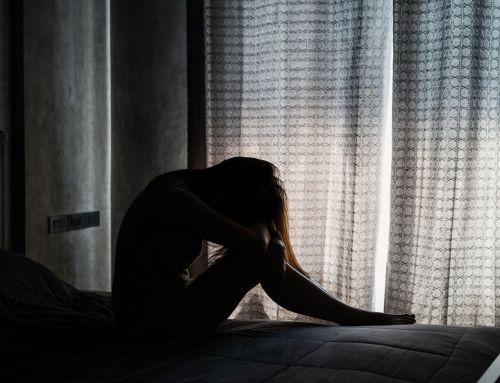
There is often a link between having a history of sexual abuse and addiction. Not all people who develop an addiction were sexually abused, and not all sexual abuse victims struggle with addiction. The factors that contribute to addiction differ for each person, and individual perceptions and reactions to the surrounding environment may also contribute.
For anyone who has a history of sexual abuse, it is important to understand how that may increase risks for addiction. It is also important to understand complicating factors and when to help someone seek treatment for substance abuse.
Sexual Abuse in Early Childhood: A Risk for Future Substance Abuse
Several studies show that a history of sexual abuse as a child increases a person’s risk for addiction as a teen or an adult. What is especially interesting about the studies that exist on this connection is that they span multiple countries. For example, one German study examined 100 patients in treatment for polytoxic drug abuse. They found that 56% of the men and 70% of the women had a history of sexual abuse during childhood. However, 80% of the participants did not relate their childhood sexual abuse to their addiction. That is another common trend in studies.
Since many people do not attribute past sexual abuse as a factor in addiction, it suggests that many victims may be unaware of their risks. Another important factor to consider is that women are often more likely than men to develop an addiction if they experienced sexual abuse in the past. According to one university research study, women who were sexually abused as children were three times more likely to develop a substance use disorder than those who were not sexually abused in the past.
Sexual abuse is a form of trauma for people of any age, and it is especially traumatic for children. In one study that analyzed childhood traumatic experiences of adults, women who experienced trauma were more likely to develop post-traumatic stress disorder (PTSD). They were also more likely to develop a substance use disorder. However, the link between substance abuse and a history of childhood sexual abuse was significant in male and female participants.
Why Sexual Abuse May Lead To Addiction
The pain and mental anguish from sexual abuse can linger for a lifetime. Many victims feel ashamed or afraid to seek the help they need to work through issues that come from one-time events or ongoing abuse. Because they often do not get the help they need and deserve, there are several reasons people seek substances. These are the most common ones:
- Trying to cope with traumatic memories or block them
- Experiencing continual feelings of loneliness or isolation
- Trying to boost feelings of self-esteem and self-worth
- Coping with co-occurring mental health issues and their effects
The specific types of co-occurring disorders that can develop and persist with addiction are outlined in an upcoming section. They make it much harder to beat addiction. Since drugs and alcohol help people feel detached from reality, they provide an escape from the pain and mental torture that victims feel from sexual abuse. Because many drugs are addictive and people build a tolerance to them, it takes larger amounts to achieve the same effects over time. An Australian study found that childhood sexual abuse victims who developed substance use disorders were more likely to experience a fatal drug overdose.
Common Types of Substance Use Disorders Among Sexual Abuse Victims
In a study, people who self-reported a history of childhood sexual abuse were more likely to have current or lifetime diagnoses of substance dependence or abuse. Also, women in the study who experienced sexual abuse as children were more likely to have cocaine and stimulant addictions. In the same study, researchers found that PTSD as a complicating factor increased the likelihood of developing an addiction to stimulants.
 Research shows that women are more likely than men to abuse alcohol as adults if they were sexually abused as children. In one study, researchers found that men who suffered sexual abuse as kids were no more likely than non-abused men to seek alcohol.
Research shows that women are more likely than men to abuse alcohol as adults if they were sexually abused as children. In one study, researchers found that men who suffered sexual abuse as kids were no more likely than non-abused men to seek alcohol.
In the study, researchers said that the gender difference was probably due to how men and women respond to being victimized. While men respond more with anger, women are more likely to internalize their feelings. Some men exhibit aggressive behavior instead, and women are more likely to turn to alcohol or another substance.
While these are the most common substance use risks, it is important to remember that all people are different. When a loved one with a history of sexual abuse shows signs of substance abuse or a co-occurring disorder, it is important to try to help.
Co-Occurring Disorders: Complicating Factors of Addiction and Sexual Abuse
A co-occurring disorder is one that exists in addition to the addiction. It may develop as a result of addiction in some cases. In most cases of sexual abuse, a co-occurring mental health disorder develops first and contributes to substance-seeking behavior.
In a study of people who entered addiction treatment, researchers looked at factors when participants entered treatment and six months later. Of the participants, 23% self-reported a history of sexual abuse, and researchers noted that they had more severe addictions and higher rates of psychological issues.
There are several possible co-occurring disorders in people who struggle with addiction and have a history of sexual abuse. These are the most common:
- Anxiety
- PTSD
- Depression
- Dissociation
Among sexual abuse victims, anxiety is often common because there is an intense fear of the abuse happening again. People with anxiety feel a constant sense of dread or fear that something bad will happen. Depression often comes from feelings of hopelessness in people who experienced perpetual abuse. It can also stem from a single event of sexual abuse. People with depression may experience fatigue, weight gain, emotional apathy and several other symptoms.
Nightmares or flashbacks commonly occur when a person is living with PTSD. The flashbacks happen upon exposure to a trigger that reminds the individual of past trauma. For example, a certain object or smell may trigger intense feelings of distress. Dissociation is often a part of PTSD. It happens when a person feels disconnected from reality or their body. This is a coping mechanism that many sexual abuse survivors develop to help detach themselves from pain. However, it makes life difficult when it happens perpetually, and it makes functioning and focusing on important tasks harder.
Dual Diagnosis Treatment for Substance Abuse and Sexual Abuse Effects
When any co-occurring disorders exist, it is important to treat the disorder and the addiction. Dual diagnosis treatment is often a great solution for helping sexual abuse survivors who battle multiple challenges. In this specialized treatment approach, professionals address substance abuse and mental health issues concurrently. They teach people how to identify triggers, avoid or deal with triggers in various environments and develop healthier coping mechanisms.
When professionals treat addiction without addressing a person’s mental health disorder, relapse becomes far more likely. This is because a mental health issue that leads a person to seek a substance still exists after the substance is removed and the person leaves rehab. Fortunately, dual diagnosis treatment is highly effective. Patients who receive sexual abuse treatment at the same time are more likely to beat addiction and regain control of their lives.
How To Help Someone in New Jersey With an Addiction and a History of Sexual Abuse
If you know that a friend or family member has a history of sexual abuse, it is important to know the signs of an addiction. These are some signs to look for:
- The person makes extraordinary sacrifices for odd reasons or does not provide an explanation.
- The person withdraws from normal activities and prefers solitude.
- He or she seems to keep secrets and may go to great lengths to do so.
- The person may go through unusual financial or legal troubles.
- The person may have mood changes and be in denial.
You may or may not find a loved one’s supply of a substance. Also, you may or may not see a person using or consuming a substance. When you know that someone has a substance use problem, reach out for help from a rehab center. Rehab and addiction treatment to address all the complexities of sexual abuse and addiction will help a struggling loved one start to heal.
If you are a victim of sexual abuse and struggle with an addiction, reaching out for help is difficult. However, it is the most important step to take to start your recovery journey and live a happier life. Our Fair Lawn facilities serves people in the area. Please contact us to learn more about addiction treatment for sexual abuse survivors in New Jersey.










